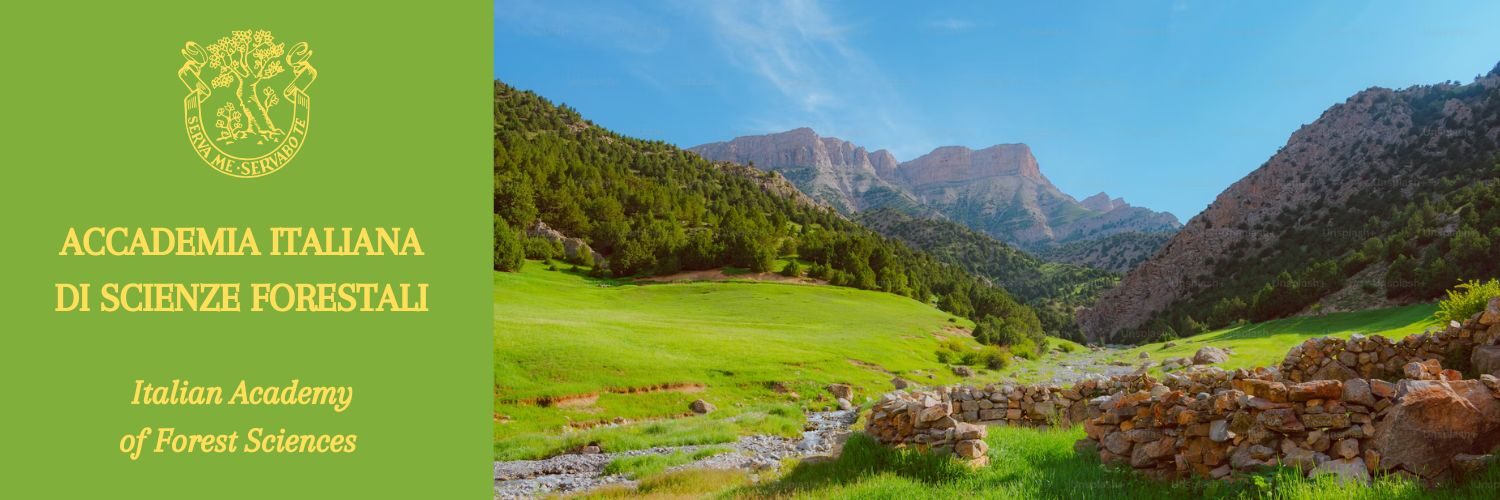doi 10.4129/2cis-ag-bos
Citazione/Citation
Hofmann A.A., 2015 – Il bosco per l’uomo, l’uomo per il bosco. Considerazioni antropologiche sulla selvicoltura. In: Atti del II Congresso Internazionale di Selvicoltura. Progettare il futuro per il settore forestale, Firenze, 26-29 novembre 2014. Firenze: Accademia Italiana di Scienze Forestali. Vol. 1, p. 308-314. ISBN 978-88-87553-21-5. http://dx.doi.org/10.4129/2cis-ag-bos
Titolo: Il bosco per l’uomo, l’uomo per il bosco. Considerazioni antropologiche sulla selvicoltura
Title: Woods for Man, Man for woods. Anthropologic reflections on silviculture
Riassunto: Storicamente l’uomo ha tenuto un atteggiamento padronale nei confronti del bosco, nel senso che si è ritenuto in diritto di sfruttarlo secondo le sue necessità immediate, di modificarne la composizione e la struttura se questo rispondeva meglio all’economia del momento, di distruggerlo se ipotizzava forme d’uso del suolo più convenienti. La selvicoltura, intesa come insieme di attività fondate su conoscenze scientifiche dei popolamenti forestali, volte ad assicurare l’impianto, la cura, lo sfruttamento razionale e la rinnovazione del bosco, ha una storia di pochi secoli, anche se non sono mancate esperienze precedenti sia pur limitate ad alcuni ambiti territoriali, come le proprietà monastiche dell’Appennino settentrionale o le foreste della Repubblica di Venezia. Ancor più recente è lo studio e l’attenzione posta dai selvicoltori ai processi naturali che regolano lo sviluppo e la vitalità del bosco, per evitare che il suo sfruttamento porti a forme di regressione delle biocenosi che lo costituiscono. Il progresso delle ricerche scientifiche ed il diversificarsi delle utilità che ci si attendono dal bosco hanno suggerito forme colturali diverse rispetto a quelle che spingevano in primo luogo a massimizzare e uniformare la produzione legnosa. Nel tempo è maturata così un’attenzione crescente per la biologia del bosco, che sollecita i selvicoltori ad abbandonare un’impostazione di tipo agronomico e ad assecondare invece le forze naturali che operano nelle cenosi forestali. Presso alcuni studiosi, questa attenzione si spinge a capovolgere il rapporto che aveva tradizionalmente legato l’uomo al bosco: essi pongono al centro del nesso uomo-bosco non gli interessi economici ed extra-economici del primo, ma i cosiddetti “bisogni” o “diritti” del secondo. In una visione prettamente biocentrica, la selvicoltura parte da presupposti nuovi rispetto al passato, come quando rappresenta il bosco come un’unità organica o quando gli attribuisce un valore in sé, indipendente dai valori perseguiti dall’uomo. Occorre invece – ed è questa la tesi della presente relazione – recuperare la centralità dell’uomo nella natura, la quale, se astratta dalla storia dell’uomo, vale a dire dalla sua cultura, dalla sua economia, dai suoi ordinamenti politici e giuridici, per noi sarebbe persino inimmaginabile, al di là di visioni mitiche o religiose. Il selvicoltore, in conclusione, cura il bosco interpretando i bisogni del proprietario, ma anche quelli dell’intera società, che nei confronti del bosco stesso nutre molte e diversificate aspettative. Lo farà con la sapienza di chi sa leggere o vuole leggere nel libro della natura e di chi mantiene la coscienza etica di custode, non di predatore, delle risorse forestali disponibili.
Summary: Man has historically maintained an attitude of ownership towards woods, in the sense that he thought it was his right to exploit them according to his immediate needs. He was able to modify their composition and their structure if this responded better to the economy of the time and to destroy them if it were to suppose a more convenient form of land use. Silviculture, intended as scientific knowledge of forestry population activities as a whole, has a more recent history: to insure implantation, care, the rational use and renovation of the woods themselves. There were, however, bygone experiences which were limited to some territories, like the monastic property of the Appennino or the forests of the Repubblica Veneta (The Republic of Venice). More recent is the concern and research of the silviculturist of the natural laws which regulate the development and vitality of the woods in order to avoid that their exploitation brings about a form of regression of the biocoenoses of which they are formed. The progress of scientific research and the different uses that are expected of woods have indicated different types of cultivation in respect to those which, above all, enforced the maximization and the uniformity of wood production. In this way attention has grown over the years for woods biology that has urged the silviculturist to give up agronomic criteria and favour instead the natural forces working in the forestry coenoses. This concern among some researchers has been roused to such a level to overturn the relationship that had traditionally tied man to woods: at the nexus is centered “manwood” not the economic interests of the first but the so called “needs” or “rights” of the second. In a typical bio-centric vision silviculture starts from new suppositions in respect to the past, like when the wood is represented as an organic unity or when value itself is attributed to it independently of the value man gives it. However, it is necessary, and this is the theme of this speech, to win back the central place of man in nature which, if taken away from his history – that is from his culture, from his economy, or from his political and juridical orders – the results would be almost unimaginable for us or imaginable from a religious or mythical viewpoint only. In conclusion, the silviculturist watches over woods thus interpreting the owner’s needs, and not only of him, but of the entire society that has many different expectations of woods. The silviculturist carries this out with wisdom, he who knows how to read and wants to read in Nature’s book and who maintains the ethical conscious of the guardian, not the pillager ofavailable forestry resources.
Parole chiave: selvicoltura, valore del bosco, bio-ecocentrismo, antropocentrismo.
Keywords: silviculture, woods value, biocentrism, anthropocentrism.
